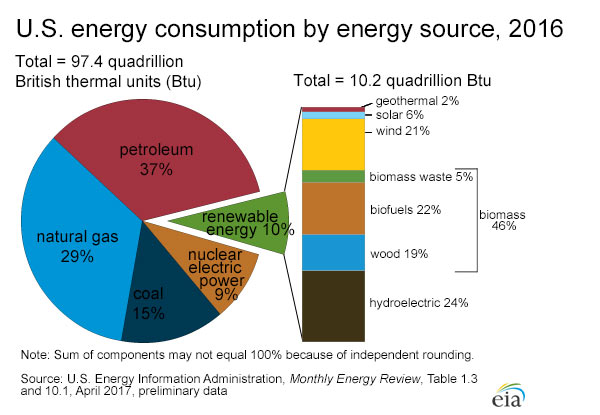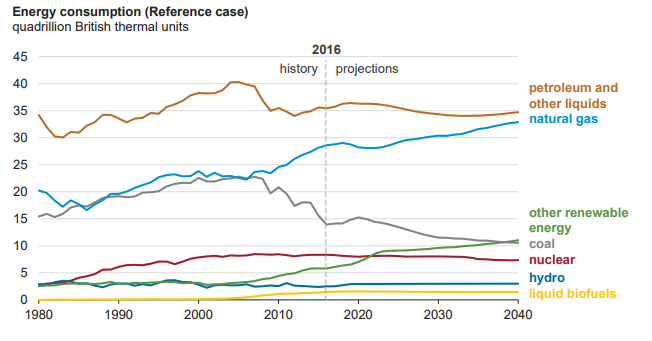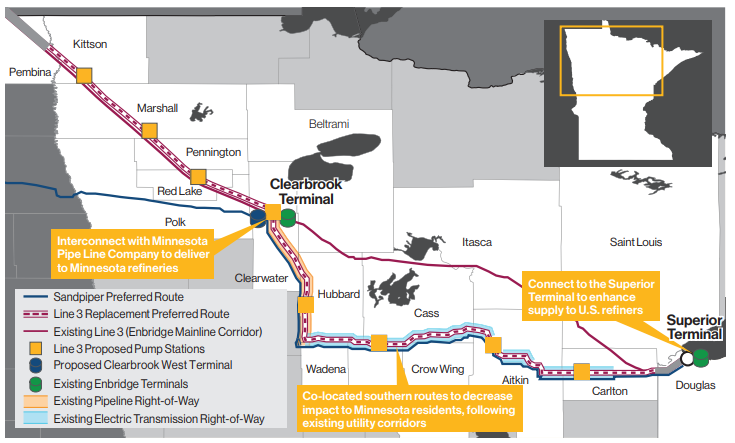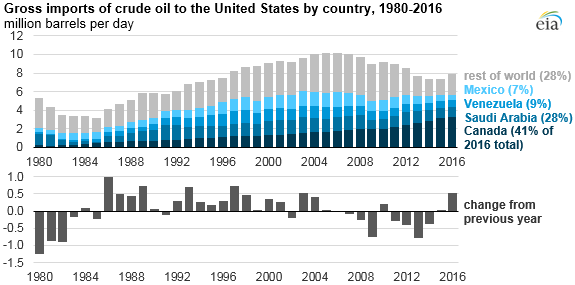Love Water and Oil, New Line 3 Will Help Us Do Both
The chant “Love Water, Not Oil,” has become a common refrain for people who oppose the construction of oil pipelines. In Minnesota, the chant is generally in reference to the Line 3 oil pipeline that runs through Northern Minnesota and is operated by Enbridge.
The only problem is, you can’t really say you love water without supporting the replacement of this pipeline.
First, a little context. Oil is the single-largest source of energy for people in the United States, accounting for 37 percent of our total energy consumption. Oil fuels our cars, the tractors that help grow our food, the semi-trucks that haul our goods from Point A to Point B, and school buses. It also produces heating oil and oil is the basis for plastics.
Oil fuels our cars, the tractors that help grow our food, the semi-trucks that haul our goods from Point A to Point B, and school buses. It also produces heating oil and oil is the basis for plastics.
In short, we use an incredible amount of oil, and we will continue to rely upon it for the foreseeable future, as shown in this diagram from the Energy Information Administration.

Now, back to Line 3.
The original Line 3 was installed in the 1960’s, and the Star Tribune notes Line 3 is aging, corroding and operating at just over half of its capacity due to safety concerns.
Enbridge has proposed to build a new pipeline with sophisticated leak prevention technology, as well as technology that allows the company to quickly detect leaks and shut down the pipeline.
For example, new leak detection technology allowed pipeline operators to identify and shut down an oil spill in a portion of the Keystone Pipeline in just 12 minutes.
That’s faster than the police arrive to 9/11 calls in many rural communities.
Rebuilding this pipeline will be a concrete step toward reducing the potential for environmental damage that is associated with transporting the oil we all depend on. It will also allow Line 3 to transport more oil, more efficiently.
This folks, is called a win-win situation.
The winning could be even better because the new route proposed by Enbridge would reduce the impact on cultural resources of Native American tribes. Moreover, more than 75 percent of the Enbridge’s preferred route follows existing pipelines or electrical transmission lines, meaning the amount of new land being disturbed is minimized. Win-win-win.

So if the new pipeline will safely provide us with the oil we all rely on, why stop the new construction? The answer is that anti-pipeline protesters do not object to this specific pipeline so much as they object to them in general.
This is also wrongheaded. We will depend upon oil for upcoming decades, and we have a choice whether we are going to purchase oil from our friends in Canada, or if we are going to purchase it from countries who may not like us.
Pipelines like Line 3 are the reason we import more oil from Canada than all of the OPEC nations combined.

Rebuilding Line 3 is good public policy, a win-win-win-win, for those keeping score.
Those who love water should also love the safest ways to transport oil. If they don’t, then they aren’t being intellectually honest.
Governor Dayton or the PUC would be foolish to act in ways that impede the construction of this new pipeline.